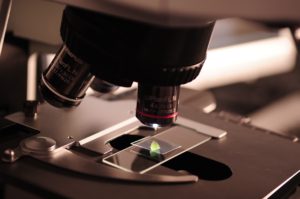
What is diabetes?
There are two types of diabetes mellitus: type 1 and type 2. Both types are characterised by having higher than normal blood sugar levels, but the cause and development of the conditions are different.
Type 1 diabetes is an autoimmune disease, which means that the immune system mistakenly attacks insulin-producing beta cells in the pancreas. Patients with this condition need to inject themselves with insulin to compensate for the loss of their beta cells, rendering them insulin-dependent.
In contrast, type 2 diabetes is characterised by the body losing its ability to respond to insulin, which is known as insulin resistance. Diabetes affects more than 400 million people worldwide, and associated health costs amount to about 630 billion GBP per year.
Some people manage diabetes by taking frequent pin prick samples to measure their blood sugar levels. Type 1 diabetes is managed with insulin injections as well as lifestyle changes. Type 2 diabetes may be managed with non-insulin medications, insulin injections, or lifestyle changes.
However, scientists in Switzerland are developing a pioneering method that may render insulin injections unnecessary. Headed by Professor Martin Fussenegger, a biotechnologist at ETH Zurich, the researchers created genetically modified cells that are introduced into the body and release insulin as soon as they detect the presence of caffeine.
(Read more about the research)
Synthetic biology and gene circuits
The team took human kidney cells and engineered them to produce insulin. They did this by creating synthetic receptors on the kidney cells that sense caffeine. Once caffeine is detected, the cells produce synthetic human glucagon-like peptide 1 (shGLP-1), which stimulates the pancreas to produce insulin, thus lowering blood glucose levels.
Scientists introduced an implant with hundreds of thousands of modified cells under the skin of ten diabetic mice. After giving them caffeine with their food, they found that the experimental animals were now able to control their blood sugar levels, just as well as those mice that did not have diabetes.
Further, the automated bio-system seemed to safely keep the mice from accidentally overdosing on insulin. The risk of accidentally triggering insulin secretion is very low, as the only source of caffeine in our diet is coffee, tea or some energy drink. And if the insulin dose needs to be increased, it would be sufficient to increase the amount of caffeine, e.g. with a larger cup of coffee.
The cellular implant that responds directly to caffeine is estimated to last for six months to one year, before a replacement is needed. But it should be tested further on animals and humans before it is ready for use, which may take even a decade until it is safe and effective.
If, however, it works for humans just as well, then it is a candidate to replace insulin injections. Something particularly promising for the more than 400 million people around the world who have diabetes. Fortunately, as many people already drink some sort of caffeinated beverage, this therapy can be integrated with lifestyle, thus minimising the issue of non-compliance.
Conclusion
This work demonstrates a promising potential in the field of synthetic biology, which can improve healthcare with minimal disruptions to lifestyle. Drinking a cup of coffee after breakfast, lunch or dinner, depending on how much insulin is required, could be enough to bring blood glucose levels back within the normal range.



